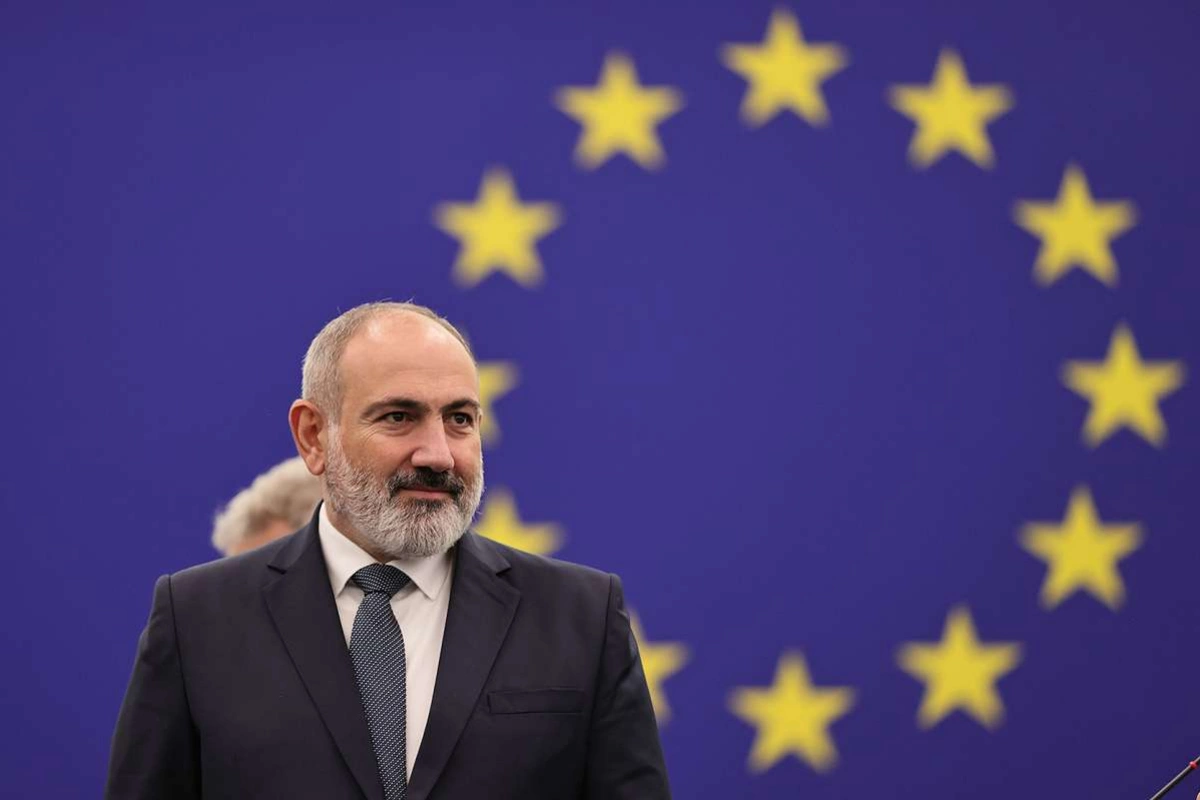
Pashinyan’s statement to the European Parliament has elicited reactions from Baku and jailed former Georgian President Mikheil Saakashvili.
Image: primeminister.am
On 17 October, Armenian Prime Minister Nikol Pashinyan addressed the European Parliament in Strasbourg. He was the first Armenian leader to do so. From the region, only then Georgian President Mikheil Saakashvili had done so in 2010. The invitation stemmed from last month’s blitzkrieg operation in Karabakh.
With Armenia now faced with 100,000 refugees from Karabakh, the European Union was quick to promise humanitarian assistance and the distribution of up to €2.6 billion in economic assistance announced in July 2021. The European Parliament also adopted a resolution condemning Azerbaijan.
Pashinyan’s invitation also came as he increasingly seeks to escape Moscow’s orbit. “Armenia is ready to be closer to the European Union, as much as the European Union considers it possible,” he said in his address.
Accusing Russia and the Collective Security Treaty Organisation (CSTO) of inaction, he also effectively accused Moscow of collusion in opposition protests held last month in Yerevan.
Pashinyan did, however, again confirm his support for the normalization process, stating that Armenia was ready to sign a peace agreement “by the end of the year.” But he also took aim at Baku’s hopes for what is known as the “Zangezur Corridor” by Azerbaijan and Türkiye—a link through Armenia from Azerbaijan to its exclave of Nakhchivan.
“Corridor, […] in everyday international speech, simply means interstate roads. But there is a peculiarity in the case of our region,” he said, alleging that it would be extraterritorial. “In the tripartite statement of 9 November 2020, the word “corridor” is used only in the case of the Lachin Corridor […].”
Whereas in the ceasefire statement, it instead mentioned that Armenia would guarantee the unimpeded and safe movement of people, vehicles, and cargo in both directions to and from Nakhchivan. It only stipulated that the security of movement through Lachin be guaranteed by Azerbaijan.
Moreover, while routes between Azerbaijan and Nakhchivan would be overseen by the Russian Federal Security Service (FSB) Border Guard Service with no specific duration given, it was implied in the statement that Lachin would exist as was for only as long as the Russian peacekeeping contingent was deployed.
“Armenia has also an obligation to ensure the construction of new transport communications connecting the western regions of Azerbaijan with the Nakhchivan Autonomous Republic,” The Azerbaijani Ministry of Foreign Affairs said in a harsh statement quoting from the 2020 statement, adding that the route could instead pass-through Iran. “Unfortunately, on another occasion, this country is missing the opportunity.”
Nonetheless, Pashinyan did signal hopes for inclusion in any new regional projects. “Armenia and Azerbaijan should open their own paths for each other without the above-mentioned corridor conversations. […] This should be done on the principle of reciprocity and equality, and […] we are ready to restore the Meghri railway,” he said.
Nonetheless, any breakthrough at the upcoming Charles-Michel facilitated talks in Brussels remains unclear, as do Russia’s next steps. “We consider the speech of […] Nikol Pashinyan in the European Parliament […] to be absolutely irresponsible and provocative,” an anonymous Russian official told TASS, warning that he would be following in the footsteps of Ukrainian President Volodymyr Zelensky.”
Later that evening, former and now jailed Georgian President Mikheil Saakashvili also chimed in on X with his own advice for Pashinyan.
“After some time, we can live like three Baltic countries—with open borders, create a whole system of logistics, financial, energy hubs, using the advantages of each of our three,” he posted. “[…] you must openly declare and immediately sign a peace treaty with Azerbaijan and thereby open the way for fundamental changes in the domestic and foreign policy of Armenia.”
Share on social media